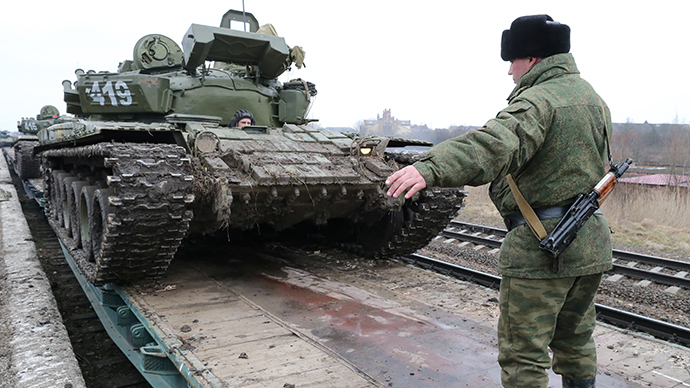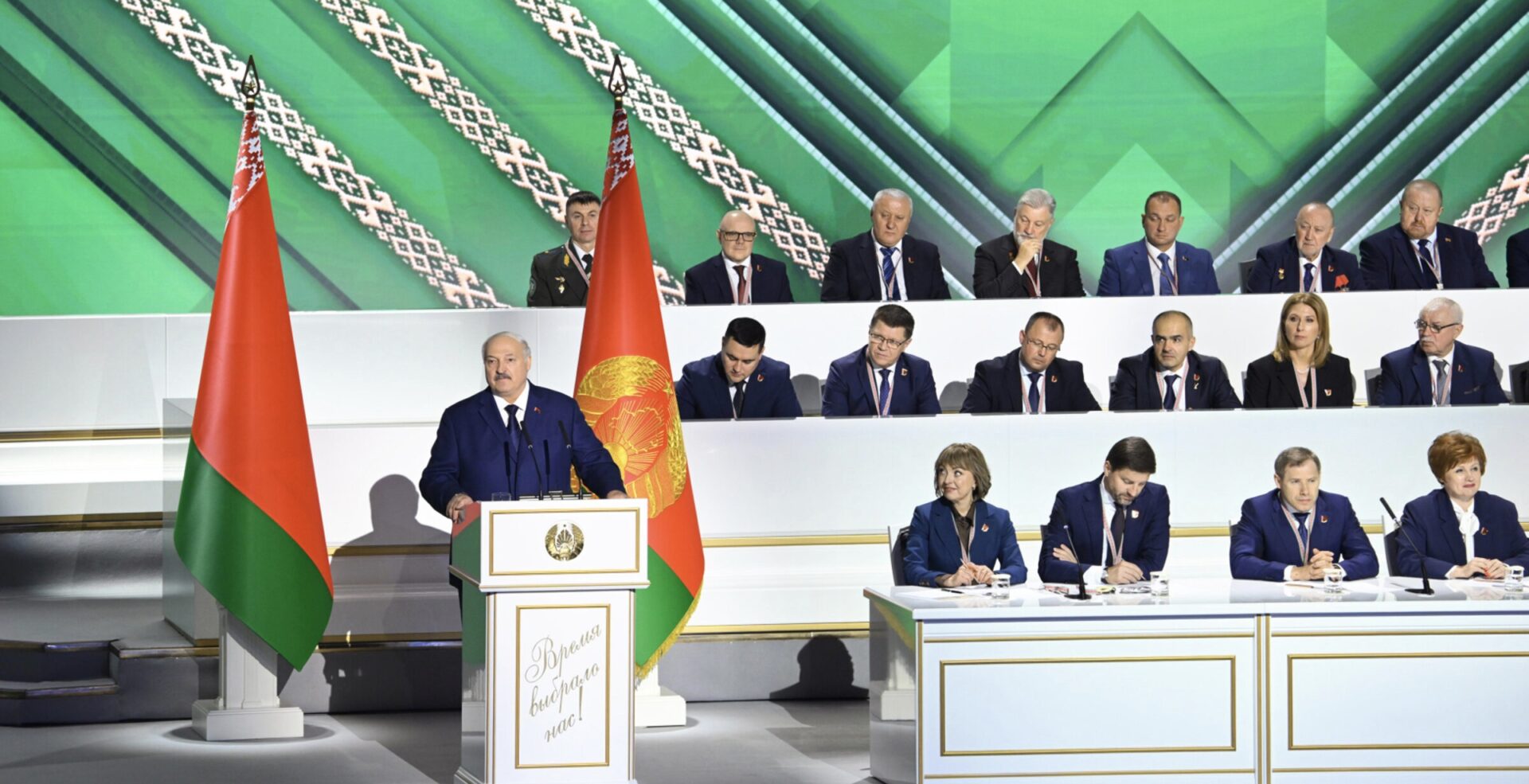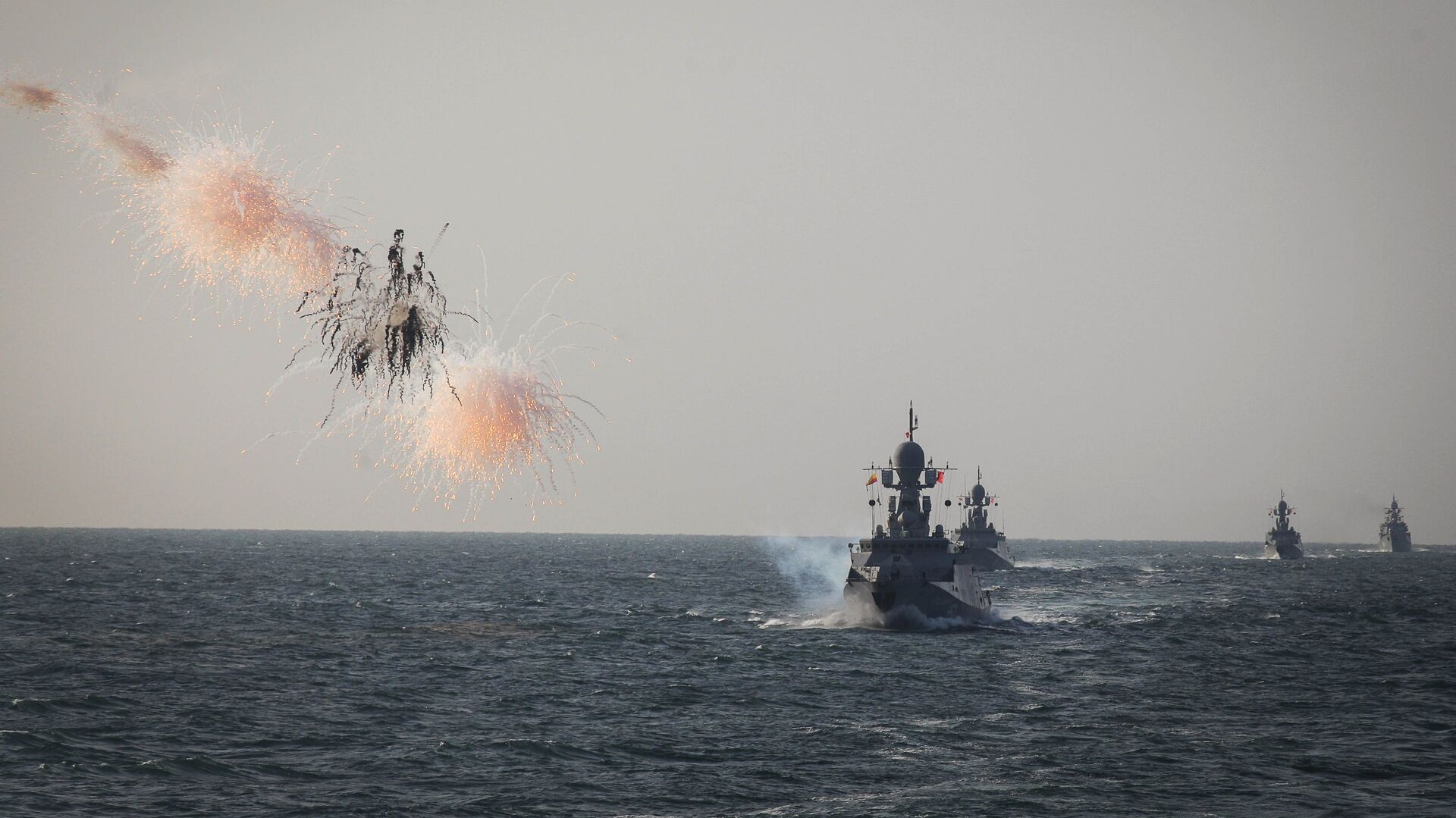
‘Magicians’ Versus ‘Technologists’ in the Russian Military (Part One)
‘Magicians’ Versus ‘Technologists’ in the Russian Military (Part One)
Syria intercepted 71 of 103 cruise missiles fired by the United States and its allies on April 14, the head of the Russian General Staff’s Main Operations Directorate, Colonel General Sergei Rudskoi, claimed during his briefing that day (TASS, April 14). The implication was that Syrian air-defense systems, produced 30–40 years ago, managed to intercept modern US weapons. The director of the Russian foreign ministry’s Non-Proliferation and Arms Control Department, Vladimir Yermakov, then insisted that “the military-technological balance has radically changed in Russia’s favor” (TASS, April 15). And earlier that month, Russian Foreign Intelligence Service (SVR) Director Sergei Naryshkin told attendees of the Seventh Moscow Conference on Global Security that “there is a violent erosion of traditional values, such as religion, nation, family and even sex under the pretext of freedom… The interests of the majority are openly violated in the so-called democratic countries” (TASS April 4). Together, such fanciful statements cannot be explained purely as salvos in Russia’s information war against the West. Rather, they seem to suggest that the top Russian officials responsible for defense and security collectively inhabit “another world” in their minds—as German Chancellor Angela Merkel once famously said of President Vladimir Putin (Globalaffairs.ru, March 10, 2014).
The above observation brings to mind a persistent school of Russian strategic military thought, the adherents of which historian William C. Fuller refers to as the “magicians” (William C. Fuller, Strategy and Power in Russia, 1600–1914, Free Press, 1992). The “magicians” insisted that the unique qualities of Russian soldiers could compensate for the technical superiority of any enemy. Over the centuries, they offered various justifications for this view, ranging from Russian soldiers’ religious faith, to their national character, to the troops’ purported belief in the ideas of Communism. For the last 150 years, the “magicians” have been locked in an ideological debate with the “technologists”—military intellectuals strongly arguing against traditional Russian methods of conducting military operations, largely based on a wasteful use of manpower. For the “technologists,” the demands of modern war meant Russia could no longer afford to ignore the potential of advanced military technology.
In 1870, “technocrat” Dmitry Milyutin tried to modernize the Imperial Russian Army but came into conflict with Mikhail Dragomirov, who argued that the ability to overcome the fear of death and endure suffering accounted for the unique “prowess” of the Russian soldier. In 1930, Mihail Tukhachevsky’s ideas of “deep operation” tactics attracted scorn from Semyon Budenny, who preferred to rely on cavalry attacks. As military historian Alfred Vagts writes in his 1959 work, A History of Militarism: Civilian and Military (p. 212), “Most militarists, being conservatives in politics, are antimaterialist.” And though they tend to ultimately accept the latest military hardware, “they are always ready to use men against material—that is, even more men against more material, thus neglecting to explore the potentialities of the latter.”
The intra-Russian debate continued as the West embarked on its Revolution in Military Affairs at the end of the 20th century. And Russia’s humiliating failure in the First Chechen War spurred calls for military reform. The Defense Council, headed by then-president Boris Yeltsin’s liberal advisor Yuri Baturin, was established for that purpose and soon proposed eliminating “large-scale conflict” (a world war, in General Staff jargon) from military planning. Instead, the military should prepare itself for local conflicts. Over the next five years, the Army and Navy was to be reduced to 1.2 million. During the second stage of reform (2001–2005), the Armed Forces were to be manned entirely with volunteers and a system of training reservists would be created.
Right away, then–defense minister Igor Rodionov (July 1996–May 1997), a classical “magician,” came out against these reforms. He insisted that neither nuclear arms, nor well-trained professional Armed Forces could contain a potential aggressor. The primary goal should be to militarize society and develop a powerful, well-trained reserve—thus deterring foreign attack through threats of unacceptable losses in a protracted war with Russia’s armed population. In other words, the country’s security would be guaranteed not by cannons, tanks, or even military professionals, but rather society’s heightened awareness of defense issues. Yeltsin fired Rodionov as defense minister after less than a year in the job (Stuart Goldman, “Russian Conventional Armed Forces,” Congressional Research Service, Report 97-820F, 1997, pp. 40–41).
The task of reforming the military was then transferred to “technologist” Igor Sergeev, who became the new head of the Ministry of Defense. Prior to being appointed to this position, the general served as commander-in-chief of Russia’s Strategic Rocket Forces (RVSN). The extraordinary complexity and great power of nuclear missiles necessitate profound focus on education and training. Thus, the RVSN have come closer to professionalization than any other branch of service. Indeed, Sergeev was the first high-ranking military commander among his contemporaries who resolutely declared there was “no alternative to a professional army.” During Russia’s deep economic crisis of the late 1990s, Sergeev proposed to concentrate all branches of nuclear forces under a unified command and thus make nuclear deterrence the most important element of national defense. But Ground Forces generals immediately began to suspect this plan would threaten their authority. Anatoly Kvashnin, the chief of the General Staff and leader of that opposition, declared in March 2001, “The Russian army resembles a man whose one arm is overdeveloped [meaning, the RVSN] and the other [the Ground Forces] is short, weak, withered. […] I will not allow this to continue” Again, the explanation referred to an alleged specific mentality of the Russian people: their “traditional worldview, priorities, moral values and even militarized consciousness… Russian values do and will continue to differ significantly from the values of the civilized West” (Bulletin of the Academy of Military Sciences, No. 4, 2003).
The balance of forces between Sergeev and Kvashnin changed drastically with the start of the North Atlantic Treaty Organization’s (NATO) 1999 operation over Yugoslavia. Yeltsin, convinced that Russia’s huge nuclear arsenal guaranteed Moscow a decisive vote on any international issue, was shocked when the West ignored Russian objections. “Why are they not afraid of us?” he reportedly exclaimed, as he opened a session of Russia’s Security Council (The Washington Post, June 12, 1999). Meanwhile, Kvashnin marched Russian paratroopers on Kosovo and seized Slatino Airport. To the elite, this was proof of the special qualities of Russian soldiers. In Yeltsin’s eyes, this single reinforced company of paratroopers restored Russia’s international prestige. And at least partly as a result, military modernization plans were postponed again.


